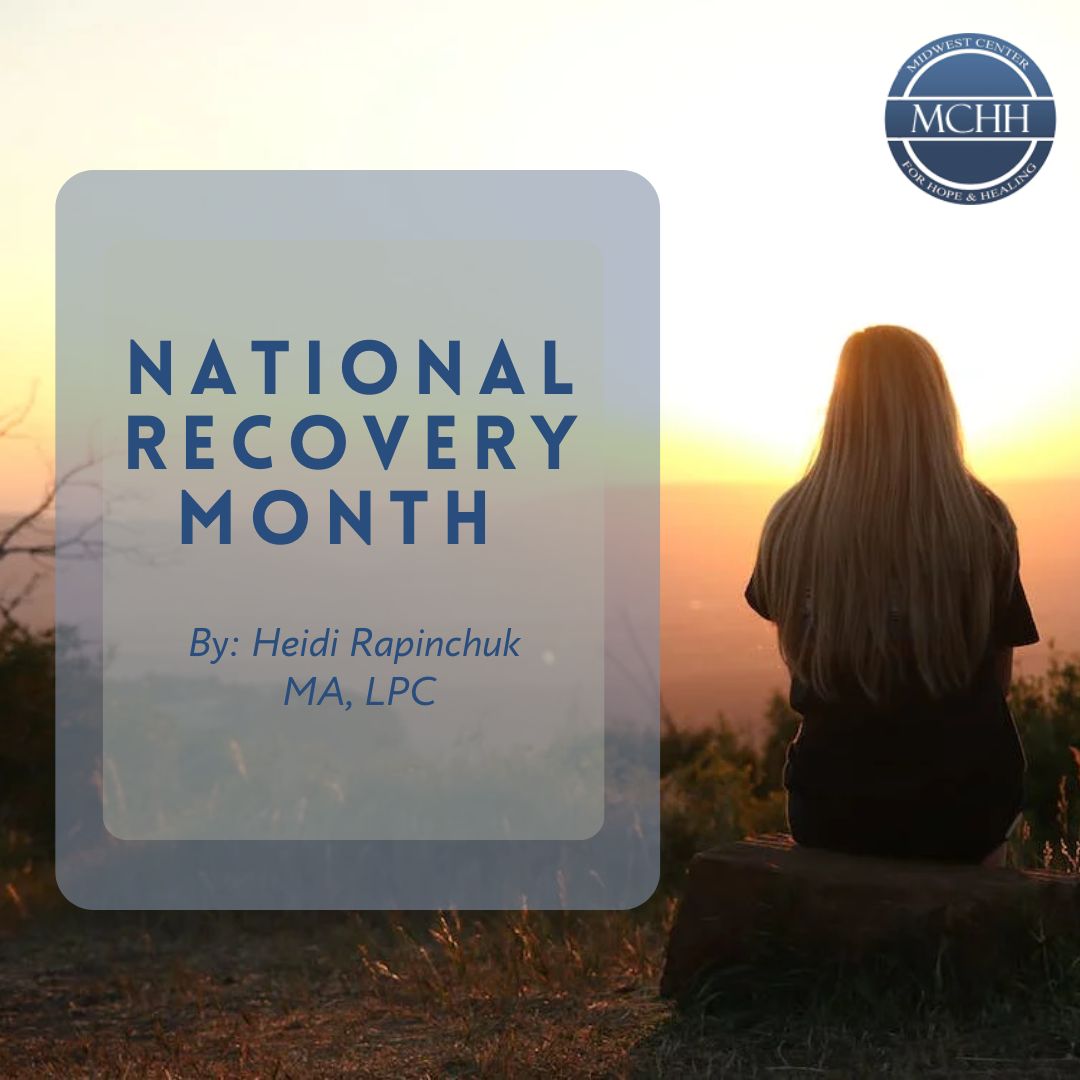
By HEIDI RAPINCHUK
Millions of Americans struggle with substance use and/or mental health disorders. The good
news is that many people do recover. Research suggests that 75% of people who experience
addiction can and do recover. There are many different roads to recovery. Recovery should not
be a one size fits all approach. Some paths can include behavioral health care, inpatient
rehabilitation and outpatient counseling. Recovery is defined as a process of change through
which individuals improve their health and wellness, live a self-directed life, and strive to reach
their full potential. (cdc.gov)
In September we celebrate National Recovery Month. National Recovery Month or Recovery
Month was started in 1989 and spreads the positive message that prevention works, treatment
is effective and people do recover. The observance is to educate Americans that substance
use treatment and mental health services can help those with a mental or substance use
disorder and enable them to live a healthy and rewarding life. It conveys the positive message
that behavioral health is important and essential to overall health. Many Americans’ lives have
been transformed through recovery. Recovery month shines a light on these stories and
celebrates these accomplishments. Just as we celebrate improvements made by those who are
managing other health conditions such as hypertension, diabetes, and heart disease, recovery
month celebrates progress made by those in recovery for substance use. Every September
many treatment and recovery programs and facilities around the country celebrate Recovery
Month in many different ways.
The theme or tagline for Recovery Month used to change every year. It is now “Every
Person, Every Family, Every Community” and will be used year after year. This tagline
emphasizes that recovery is possible for all. Treatment can save lives. The goal of celebrating
recovery month is to promote and support treatment and recovery practices, celebrate a strong
and proud recovery community and the dedication of those who help to make recovery possible
such as service providers and community members. Recovery month also provides an
opportunity to help eliminate the stigma behind substance use and mental health disorders and
letting people know that treatment is effective and people can and do recover.
Recovery should be celebrated during the month of September and beyond. Celebrating
milestones in recovery can be beneficial as it can boost one’s confidence, encourage
maintaining sobriety, inspire others to seek recovery, and a reminder to loved ones that your
struggle is in the past. Some ways you can celebrate Recovery Month include attending a
recovery event, sharing your story, volunteering, and/or donating. If you have a loved one in
recovery you can support them by joining them for family therapy, learn more about substance
use disorders, set healthy boundaries, and keep communication open. It is also important to
avoid using substances around them and try to enjoy healthy activities together.
Recovery month is sponsored by Faces and Voices of Recovery, a recovery advocacy
organization. To find more information about National Recovery Month including finding events
across the country, you can visit https://rm.facesandvoicesofrecovery.org/
